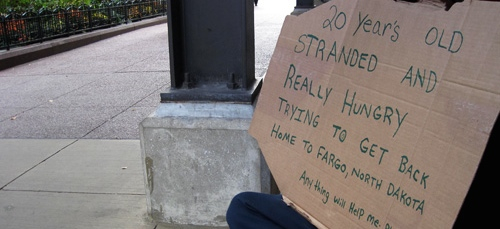A 2014 report states that there are approximately 138,575 homeless people in Chicago. From a passerby’s perspective, it would appear that the majority of those people are single. However, if we break down that number, we can see that only 46% of that number, or approximately 64,047 people are single adults. This means that 70,028 or 50.5% of the people living without a permanent address are actually part of a family. Further broken down, there are 21,285 parents or grandparents on the streets, accompanied by 48,743 children. To make up the rest of this statistic, there are approximately 4,500 unaccompanied youth ages 14-17 living without permanent shelter in the city. To help these people, the city of Chicago offers 2,064 emergency shelter beds, 3,903 transitional housing beds, 8,460 permanent supportive housing spots, and 260 youth beds. This number does not come close to providing enough beds for all of the people that need them.
All Chicago, an organization that works to provide immediate housing solutions for families reports that emergency shelter beds cost $8,000 more than the average annual cost of a Section 8 Housing Certificate. This certificate provides “tenant-based” rental assistance and allows individuals to apply their monthly voucher towards the purchase of a home, therefore allowing them to focus on other things, like work and school, that will allow them to stay off the streets. This fact explains why the city of Chicago’s investment of $1,227,600 in 2015 to provide new shelter beds did little to impact the number of people living without shelter. Vulnerable families need access to other resources beyond beds in order to be successful in getting off the streets.
These families need ways to live their lives as normally as possible. They need environments to study and play in, transportation to and from school, and so much more. Thankfully, the non-profit organizations of Chicago are able to fill in the gaps left behind by the government. Organizations like the Chicago Coalition for the Homeless advocate for programs that will ultimately lead to the end of homelessness such as job training and legal assistance. Chicago HOPES for Kids is an organization managed by volunteers that provides after-school tutoring in shelters across the city. Other organizations that aid in the fight against homelessness in Chicago include: Sarah’s Circle, Breakthrough Urban Ministries, Curt’s Café (Evanston), and so many more.
By Meghan Zacher
Center for Public & Global Affairs Intern
August 11, 2015

